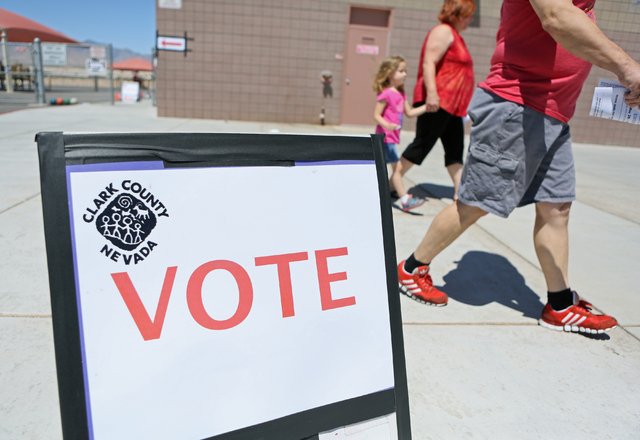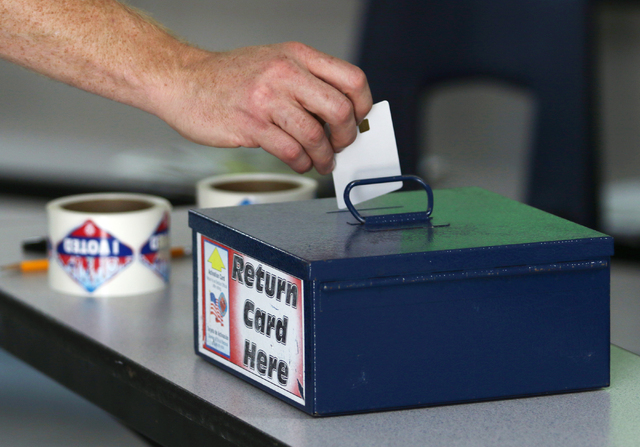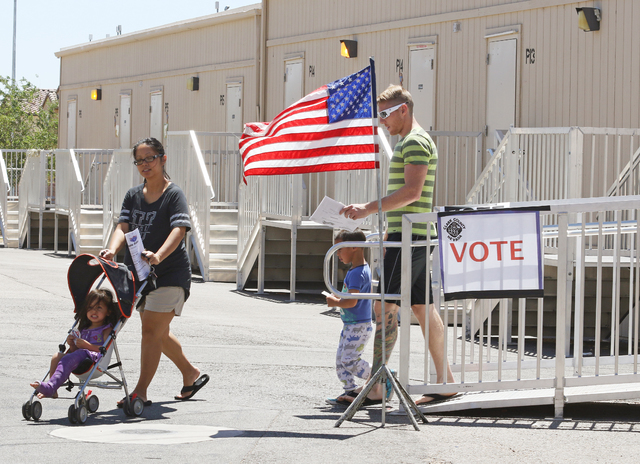Chances of cyberattacks affecting election results in Nevada, US called remote
CARSON CITY —The nation’s secretaries of state are trying to reassure voters that despite talk of cyberattacks and “rigged” systems in this contentious election cycle, the prospect of outside hackers skewing the outcome is remote.
In a letter to Congress from the National Association of Secretaries of States to be delivered Monday, top election officials said they are working with national security agencies “to address any attempts by nation-state adversaries to disrupt the presidential election and call its integrity into question.”
The association downplayed any suggestion that hacking could manipulate the election tally.
“Machines are standalone and do not connect to the internet,” the letter said, adding there is “no evidence that ballot manipulation has ever occurred in the U.S. via cyberattack.”
That doesn’t mean foreign hackers haven’t intruded into the political process.
In August the FBI issued a “flash alert” warning of foreign attempts to infiltrate the election systems in several states. Hackers targeted voter registration databases in Illinois and Arizona in the summer. A breach of Democratic National Committee computers was revealed in July when emails were leaked during the Democratic National Convention, leading to the resignation of U.S. Rep. Debbie Wasserman Schultz, D-Fla., as committee chairwoman.
But unlike emails and voter registration information, polling machines are not connected to each other or the internet, which provides the portal hackers need to breach a system.
“There’s a difference,” Nevada Secretary of State Barbara Cegavske said Friday.
That point was emphasized by the national association.
“Vote counting is never done with systems connected to the internet, and tabulation systems are not networked,” the organization said in its letter obtained Friday by the Review-Journal.
“Election management and voter registration systems make the voting process more efficient and accessible, but they are not linked to vote casting or counting,” the letter said. “While it is theoretically possible to disrupt an election via networked systems, their compromise will not affect election results. These systems have their own fail-safes and contingency solutions that would make it highly difficult to leverage them for changing outcomes.”
The House Oversight Subcommittee on Information Technology is scheduled to hold a hearing Wednesday in Washington, D.C., on cybersecurity and integrity at the ballot box.
The issue of Nevada’s election cybersecurity came up Thursday during a meeting of the state Homeland Security Commission.
Gov. Brian Sandoval referenced a letter he received from U.S. Sen. Tom Carper, a Delaware Democrat and ranking member on the Senate Homeland Security and Government Affairs Committee, urging states to take advantage of technical assistance available through federal agencies.
Sandoval also spoke with Homeland Security Secretary Jeh Johnson about available services, including “cyber hygiene assessments” provided by the Department of Homeland Security to identify system vulnerabilities and recommend fixes.
“This doesn’t in any way suggest that Nevada’s system is vulnerable or at risk,” Sandoval said after the meeting. “But I think it’s important, given the magnitude of the election and that it’s a presidential election, that we exhaust every resource that’s out there to make sure our system is good to go.”
Cegavske said her office has been in contact with federal security agencies “for a long time.”
Wayne Thorley, Cegavske’s elections deputy, agreed.
“We’re very confident in the system we have, the protocol and procedures we have in place,” he said. “We have adequate safeguards to protect us from outside hacking attempts, inside hacking attempts.”
Early voting in Nevada for the Nov. 8 election begins Oct. 22.
Absentee ballots to military personnel and residents overseas were mailed Friday.
Contact Sandra Chereb at schereb@reviewjournal.com or 775-461-3821. Follow @SandraChereb on Twitter.

















